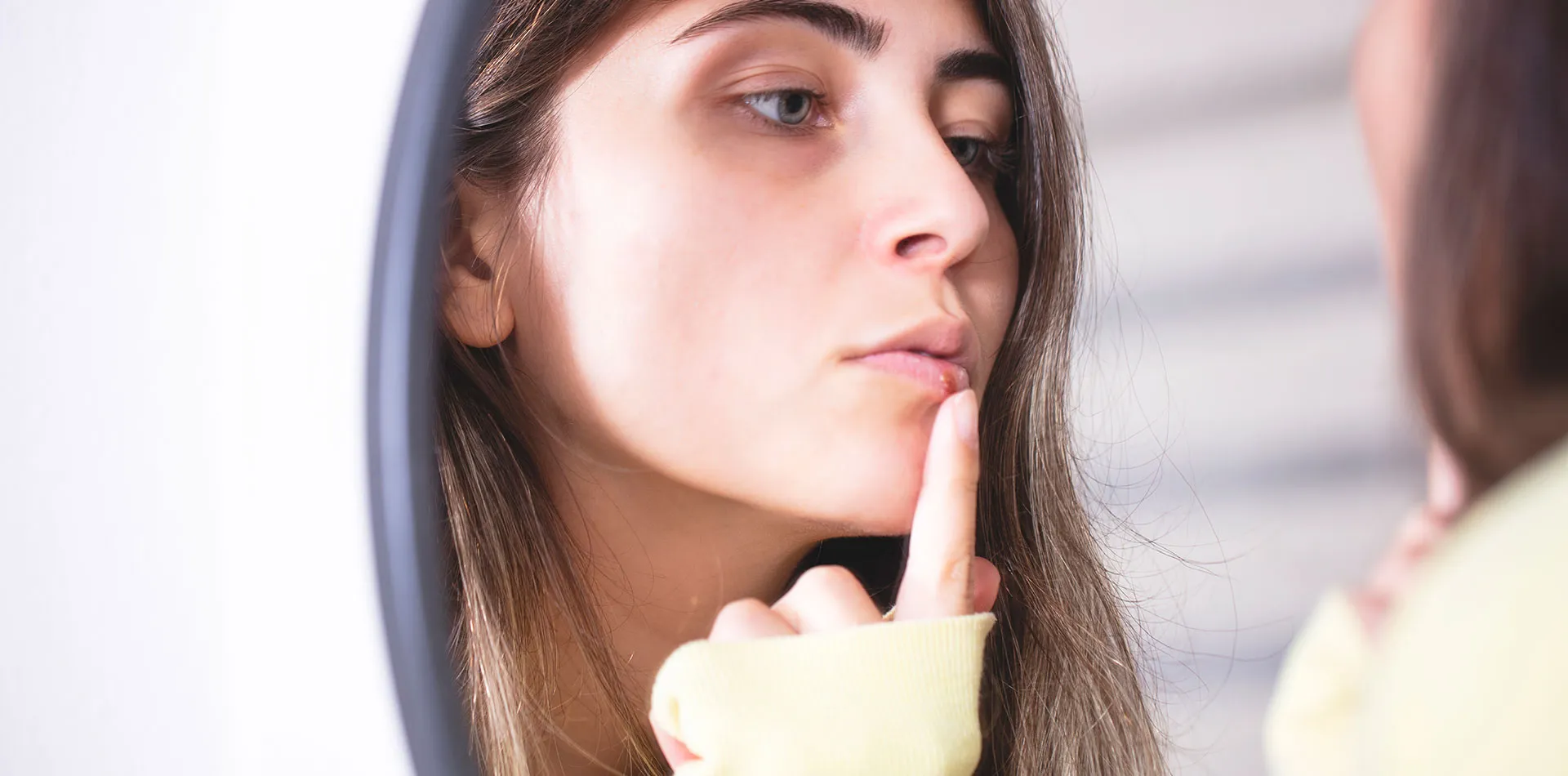
Cold sores are small, fluid-filled blisters, which form on and around your lips, also known as fever blisters. These are viral infections seen in a group of patches and heal within two to three weeks without scarring the skin.
Cold sores may spread from one person to another when in close contact through kissing. The disease is caused by herpes simplex virus type 1 (HSV-1) and type 2 (HSV-2) that affect the mouth or genitals. These are contagious even when the sores are not visible.
Although there is no cure for this condition, people can manage outbreaks through treatments such as antiviral pills or creams that help heal and reduce the frequency, length, and severity of the episodes.
People having cold sores may experience the following:
• Tingling, burning and itching are felt around the lips a few before painful blisters erupt.
• These blisters, small fluid-filled, erupt around the lips and sometimes around the nose, cheeks or inside the mouth.
• Then the tiny blisters merge and burst, leaving shallow open sores that flow and crust over.
Cold sores signs vary from person to person, based on whether it is the first occurrence of the outbreak or a recurrence. The first occurrence may take time to appear after being exposed to the virus, and healing takes longer, up to 2-3 weeks. People may experience fever, painful gums, sore throat, headache, muscle aches, swollen lymph nodes. The reoccurrences are usually less severe than the first outbreak.
Cold sores usually clear up without treatment. Consult a doctor if your immune system is weak, the blisters don't heal within two weeks, experience severe symptoms. Also, when you have irritation in your eyes and the frequency of recurrences of cold sores is more.
Cold sores happen due to herpes simplex virus (HSV), HSV-1 causing cold sores and HSV-2 for genital herpes. Both these types may spread to the face or genitals through close contact via kissing or oral sex. In addition, HSV-1 can also spread because of shared eating utensils, razors, and towels.
Cold sores are more contagious with oozing blisters as the virus quickly spreads via contact with infected body fluids. However, it may extend when the blisters don't appear as many infected people never develop any signs.
Once the person is infected with the herpes virus, the virus lies dormant in nerve cells in the skin and may remerge a cold sore at the same place as before. Recurrence is triggered by viral infection or fever, stress and fatigue, hormonal changes like menstruation; exposure to sunlight and wind; injury to the skin, and changes in the immune system.
Everyone has a risk of cold sores as almost all adults carry the virus, even when they've never had symptoms. The most risk appears for those with a weakened immune system from conditions and treatments of HIV/AIDS, cancer chemotherapy, atopic dermatitis (eczema), and anti-rejection drugs for organ transplants.
In some cases, the virus may cause problems in other parts of the body, such as:
• Fingertips: Both HSV-1 and HSV-2 may spread to the fingers, referred to as herpes whitlow. Children that suck their thumbs can carry the infection to their thumbs.
• Eyes: The virus may cause an eye infection, and repeated occurrence may lead to scarring and injury, resulting in vision problems or loss of vision.
• Widespread areas of skin: People with atopic dermatitis (eczema), a skin condition, have a higher risk of cold sores developing all across their bodies, which becomes a medical emergency.
Generally, the doctor prescribes an antiviral medication for regular consumption when cold sores occur over nine times a year or if the person has a high risk of serious complications.
When sunlight triggers such recurrences, apply sunblock to the spot of cold sore where it usually erupts.
Consult the doctor about using an oral antiviral drug as a preventive measure when you expect to do activities that trigger your condition, such as intense sunlight exposure.
Prevent and avoid the spread of cold sores to other people or parts of your body by following the below precautions step:
• Avoid kissing and skin contact with people when they have blisters, as it spreads quickly when the blisters leak fluid.
• Avoid sharing items, including utensils, towels, lip balm and other personal items, when blisters are seen.
• When cold sores are present, wash your hands carefully and frequently before touching yourself and other people, especially infants.
Patient Experience